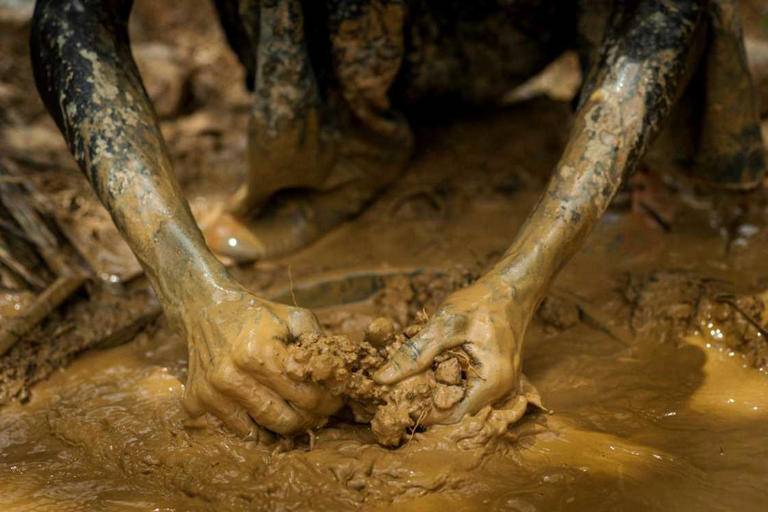Ghana's Illegal Mining Boom Influences Presidential Election
Dressed in a white singlet with a scarf tied around his head, Frank crouched near a muddy pit, ready to sift through the soil for gold. Around him, shirtless men, dirt-streaked and sweating under the blazing sun, worked tirelessly near Ghana's capital, Accra. Some shoveled sand into makeshift troughs, while others operated roaring excavators, further degrading the already barren landscape—a stark reminder of the environmental toll of Ghana’s illegal mining boom.
Known locally as "galamsey," illegal mining has become a contentious issue ahead of Saturday’s presidential election, where Vice President Mahamudu Bawumia of the ruling New Patriotic Party (NPP) faces opposition leader and former president John Mahama of the National Democratic Congress (NDC).
“For 16 years, this is how I’ve survived,†said Frank, who declined to use his real name. “We know we harm the land and pollute the rivers, but there are no jobs. What choice do we have?â€
Driven by poverty, miners like Frank risk their lives to earn about $180 weekly—more than a teacher's monthly salary. However, the practice comes at a high cost: deforested lands, polluted rivers, and decimated cocoa farms, which threaten Ghana’s second-largest export. Mercury and cyanide runoff from mining now endanger drinking water for millions, with regions like Osino stripped of fertile land.
Galamsey accounts for 40% of Ghana’s gold production, employing over a million people. Despite its economic significance, it operates outside legal frameworks, enriching criminal networks and devastating ecosystems.
President Nana Akufo-Addo’s 2017 promise to eradicate galamsey remains unfulfilled. Rising gold prices and unemployment have only fueled its growth. Protests, amplified by hashtags like #StopGalamseyNow, demand urgent action, but political promises remain vague.
“None of the parties have a clear strategy to tackle illegal mining,†said Clement Abaidoo, director of the Center for Environment, Natural Resources and Sustainability.
Recent government crackdowns, including deploying naval boats, face criticism for being poorly coordinated. Miners like Frank argue for responsible mining solutions rather than military crackdowns.
For Ghana’s younger voters, the issue symbolizes government failure, as short-term interests overshadow sustainable solutions. With over 4,700 hectares of land destroyed, environmental advocates stress the need for collaborative action to protect Ghana’s natural heritage before it’s too late.



No comments yet
Be the first to share your thoughts!